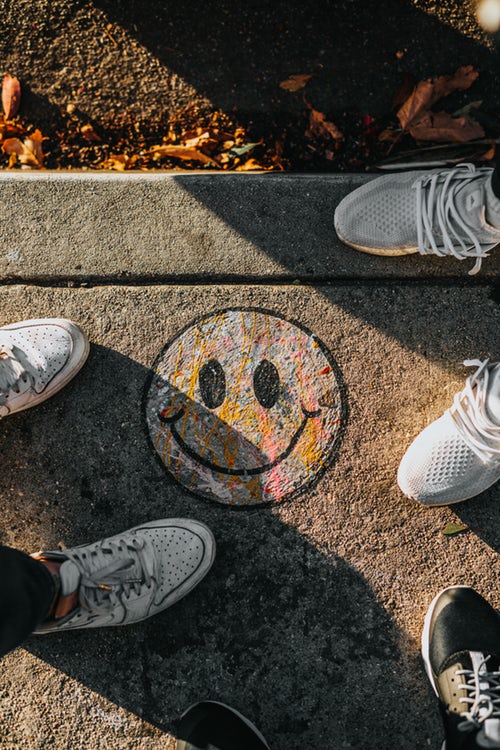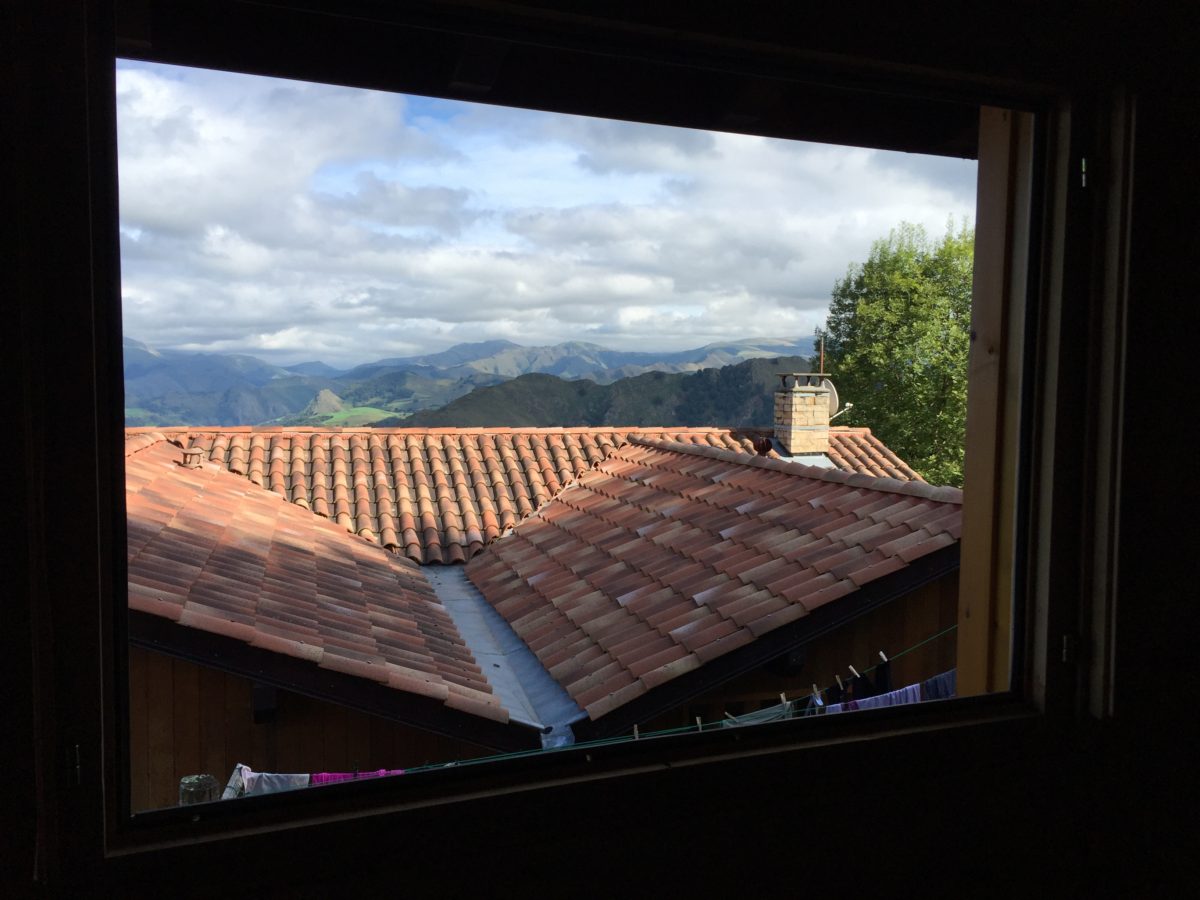You may have wondered if religious people are more grateful than their unbelieving or agnostic peers. Maybe you’ve asked yourself if praying makes you a more grateful person, or if parenting styles encourages the development of grateful children.
Today on Meditation Mondays, we’ll look at those factors: what role does religion or faith or parenting play in gratitude.
What’s Religion Got to Do With It?
As it turns out, a lot.
In a 2003 study, people who were noted as being more grateful had a higher sense of engaging in religion for it’s own sake and a lower sense of engaging in religion for the sake of others. Like someone would if they engaged in religion simply for the sake of improving their social status. In other words: dishonest motive.
Other studies show positive correlations between gratitude and attirbutes typically associated with religion, such as:
- frequently participating in religious practices
- considering religion to be an important factor in life
- having a personal relationship with God
- experiencing spiritual transcendence—a perceived experience of the sacred that affects your feelings, goals, self-perception and ability to surpass, conquer or outshine your difficulties
- being committed to your religion—a sense of and expressing your commitment
When studying young people ages 17 – 24, researchers found that this age group tends to feel gratitude when they—
- have their prayers answered
- experience a miracle
- have religious friends
But there were behaviors not correlated with gratitude—
- the religion a person was affiliated with
- private devotion practice
- actively participating in organized religion
- having a belief in a spiritual world
- how important religion is to your life
- considering yourself to be spiritual
I found this list interesting. These results show that gratitude is not triggered or related to what religion you practice; whether or not you maintain a practice of doing devotions or having a time of devotions; being active in organized religion; just generally believing in the spiritual world; ranking religion as very important to your life; or considering yourself spiritual.
I find the last finding fascinating.
So often I have heard someone say, “I’m not religious, but I’m spiritual.” My internal eyeballs roll. Exactly what does that mean? I’m not sure they can answer that. But now I have some scientific ammunition for how flimsy that belief can be.
Evidently just being spiritual doesn’t make you grateful.
But what does affect your gratitude is praying and having your prayers answered!
And while both Christians and atheists put a high price tag on gratitude and the benefits that come with and from being grateful, it was the Christians that reported “significantly higher” levels of gratitude in terms of emotions that feel or emote gratitude than their unbelieving peers.
Religion, gratitude, and mental health—
Some interesting findings popped up in this category.
Older adults that tended be less grateful experienced depression with prolonged financial difficulties.
But church-attending older adults who believed that God intervened in their lives to help them overcome difficulties displayed greater gratitude over time.
And religious involvement has been linked to having a grateful disposition, regardless of negative or positive feelings or display of emotions.
Using your religion to deal with stress had a significant association with gratitude, and that has a high correlation to utilizing prayer to figure out what God is trying to tell you or teach you.
The takeaway is:
- religion may help people maintain gratitude even in the face of emotional distress.
- religion also offers social support, which triggers gratitude.
- praying can stimulate gratitude, for achieving help or understanding (for you or others).
- gratitude can help you view negative life events as lessons from the Almighty!
Effects of Praying on Gratitude—
Research has shown that if you are instructed to pray for your partner for a 4-week period of time, you will likely report having higher levels of gratitude for that person than someone who just thinks good or positive thoughts about their partner.
Ever have anyone say to you “I’ll be thinking good thoughts for you!”
When someone says that to me, it always leaves me feeling a little flat and uninspired. I always assumed that was because the person saying it was usually an atheist or agnostic. But maybe it’s because deep down inside my heart, I know “good thoughts” won’t cut it. Something deeper needs to be involved.
But don’t fall into the trap of simply egging someone on with adding religious-speak, either, like using the words “spirit,” “divine,” and “God.” Using those words fall just as flat. They don’t increase feelings of gratitude.
And do you think that having intrinsic religiousness and a trait of gratitude increases your gratitude for a favor? Evidently that power combo didn’t effect the expression of gratitude in response to a favor.
Men versus Men—
In the German men versus American men study I mentioned in last week’s post, the researchers also discovered that 1/3 of the American men in the study preferred to hide their gratitude.
None of the German men expressed that desire or need.
Gratitude and people around the world—
Far more than Americans, United Kingdom citizens tended to link gratitude with a host of negative emotions, like:
- guilt
- indebtedness
- embarrassment
- awkwardness
And kids?
American children were the most likely to express “concrete gratitude” (the desire to repay a gift or favor), when they were compared to children from Russia, Brazil, and China.
Which kids were the least likely to express it? Russian kids.
However, 11 to 14-year-old Russian kids expressed “connective gratitude” (taking into account the desires of the benefactor when repaying a gift or favor) than the other children.
What about parenting?
Drum roll? Brrrrrrrrrr. The answer is…?
Nothing. Not anything concrete, anyway.
What a researcher named Andrea Hussong did find and publish in 2017 was while 85% of parents encouraged their children to say “thank you,” only 39% of them to experience gratitude in ways other than saying those two words.
The question that still remains in the area of parent-taught gratitude, though, is how parenting choices influence how children think of and experience gratitude.
Researchers say it’s an area ripe for more research, and more study needs to be done on it.
NEXT WEEK we’ll take a break from looking at the research to explore more of gratitude in prayer. You won’t want to miss this post! It’ll provide you with great preparation for Thanksgiving, and a good Christmas present idea—for you or that special friend.
Until then, be thinking about how you pray and for whom you pray.
- Who could you pray and increase your gratitude for?
- How might you increase your children’s gratitude expressions through parenting?
- As Thanksgiving approaches, who can you think of that would get a real boost from a show of gratitude?
- How could you boost your own gratitude trait?
Blessings,
Andrea
May you prosper in all things and be in health, just as your soul prospers (3 John 2).
Photo by rawpixel on unsplash



